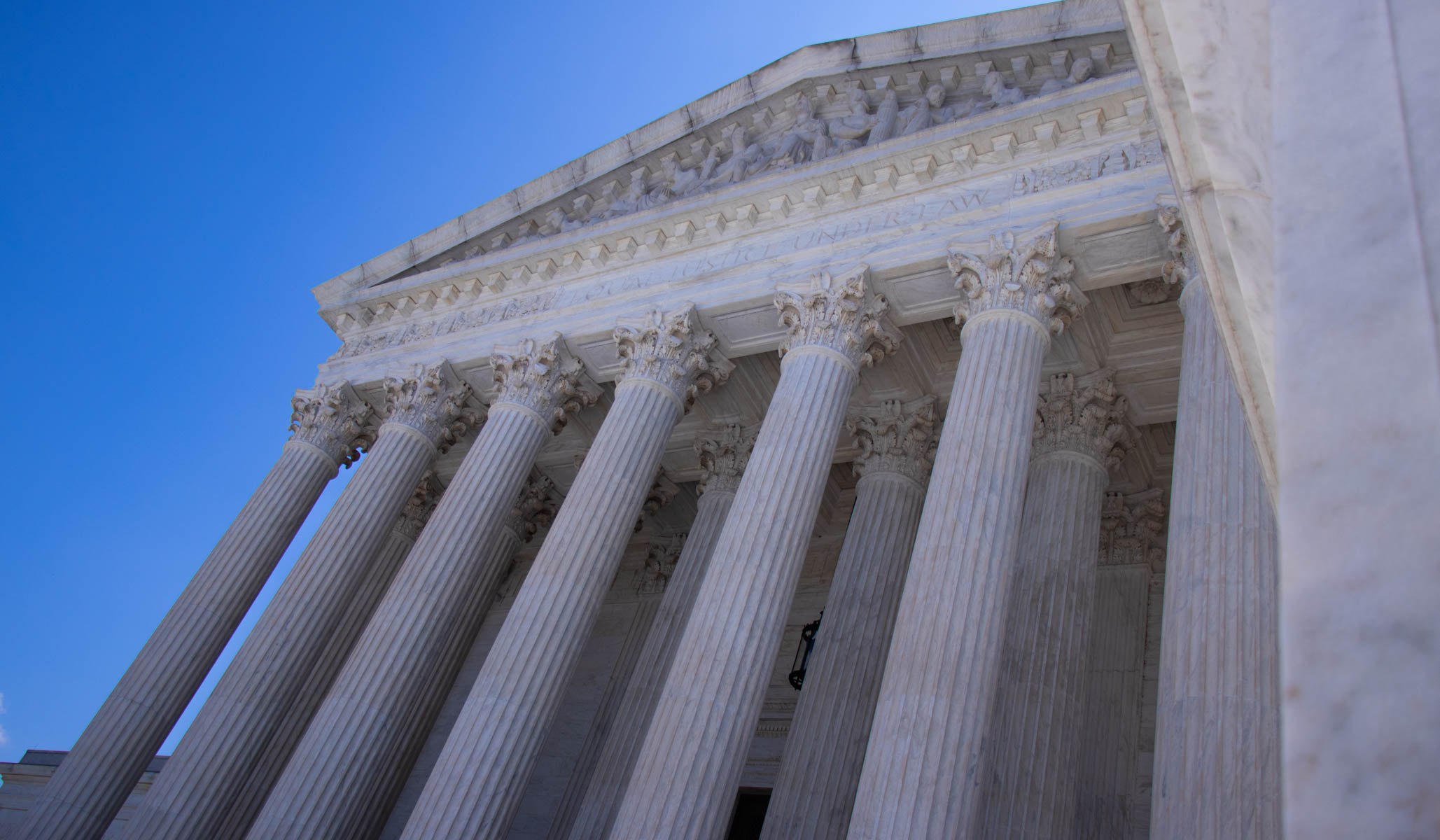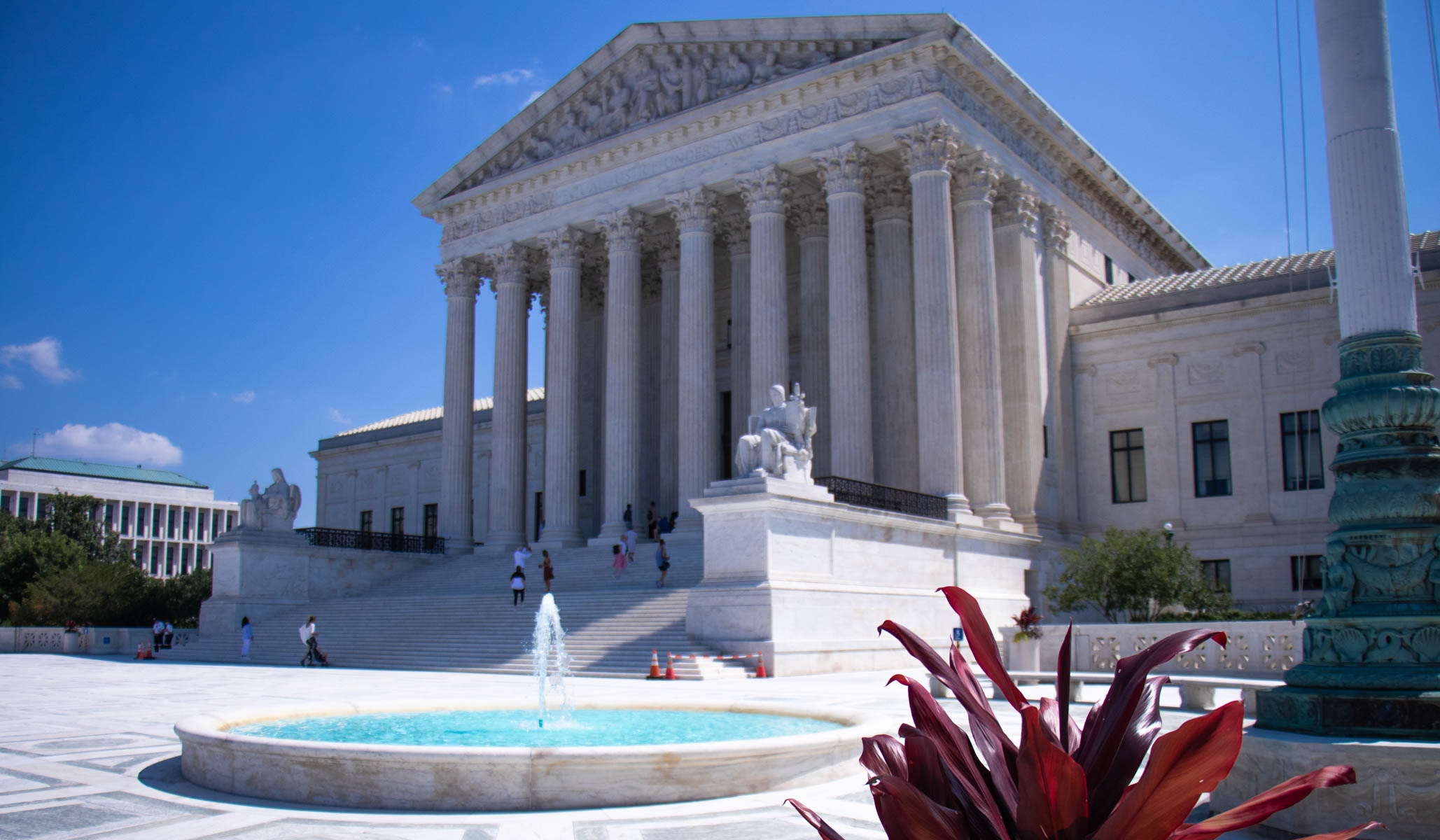
Given the importance of Dobbs v. Jackson Women’s Health Organization, which will be argued before the Supreme Court tomorrow, it is worth surveying what some distinguished experts have had to say about the case and the key precedents at issue, Roe v. Wade and Planned Parenthood v. Casey.
Edwin Meese III, U.S. attorney general from 1985 to 1988
“Reversing Roe and Casey will not ban abortion. States and the people will be free, as they are in many other areas, to decide such matters of personal morality. But failing to reverse Roe and Casey in a case squarely presenting the question would suggest that the Founders’ views cannot compete with the preferred positions of some special interests. For the sake of a republic of laws and not of men, I hope the court will ratify the promise of the Founders’ Constitution.”
Washington Post: Did the Conservative Legal Movement Succeed? That All Depends on Whether the Supreme Court Overrules Roe v. Wade.
Mary Ann Glendon, professor of law emerita at Harvard Law School; O. Carter Snead, professor of law at Notre Dame Law School
“As legal experts on both sides of the aisle have acknowledged, the Court’s abortion jurisprudence is untethered from the text, history, and tradition of the Constitution. It has imposed on the nation, for several decades now, an extreme, incoherent, anti-democratic regime pursuant to constantly shifting rules, standards, and rationales. What’s more, it elevates a particular vision of human identity and flourishing that is both constitutionally unjustified and morally pernicious in that it systematically prevents the elected branches of government from adopting measures that address the needs of the vulnerable mothers, children, and families involved.”
National Affairs: The Case for Overturning Roe
Robert P. George, professor at Princeton University
“The Constitution defines no right to elective abortion, much less one so sweeping. And the precedents cited by Roe—even the most lawless ones—did not come close to supporting a right to any activity so harmful to innocent third parties. Roe leaned instead on lies about the history of our common law and lies about the history of state abortion statutes.”
First Things: Roe Will Go
Ramesh Ponnuru, senior editor of National Review
“To a greater extent than even most of its opponents realize, the reign of Roe v. Wade has relied from the very beginning on a false and sometimes fraudulent version of history. Justice Harry Blackmun’s majority opinion repeatedly cited slipshod scholarship that was already in the process of being discredited in 1973 and has since been comprehensively debunked. The Supreme Court has, however, never revisited its mistaken historical claims, which have instead taken on a life of their own in academic work, popular journalism, and legal briefs.”
National Review: The Corruption of History
Maureen Condic, associate professor of neurobiology at the University of Utah
“Rigorous investigations of fetal behavior that became technologically possible only at the end of the 20th century created an unprecedented new tool for studying fetal behavior. And by directly observing fetal behavior, these tools have given us a far better understanding of fetal consciousness and pain than was available at the time of Roe or Casey. There is now strong evidence that fetuses as early as twelve weeks exhibit conscious, intentional behavior and that they actively discriminate among similar sensory experiences.”
National Review: The Suffering of the Unborn
Hugh Hewitt, professor of law at Fowler School of Law at Chapman University
“Roe and Casey should be discarded because they are bad decisions that perverted the Constitution and took us all into the deep polarization we find ourselves in now. When our courts decree, our politics decay.”
Washington Post: ‘Roe’ Will Be Overturned. The Federal Courts Will Go Back to Normal.’
Julia D. Mahoney, professor of law at University of Virginia
“The viability framework has always been something of an embarrassment, in large part because viability hinges on medical technology and access to it.”
New York Times: Fetal Viability, Long an Abortion Dividing Line, Faces a Supreme Court Test
Grazie Pozo Christie, diagnostic radiologist and policy adviser for the Catholic Association
“Perfectly apparent now, to the justices sitting on today’s court as well as the public, are the liveliness and humanity of babies at 15 weeks of gestation—the age at which Mississippi proposes to protect them from elective termination. Nestled within their mothers, these fetuses on average are 6.4 inches long and weigh 4.1 ounces. They have the proportions of a newborn—seemingly all head and rounded belly. The major organs are formed and functioning, and although the child receives nutrients and oxygen through the mother’s umbilical cord, the fetal digestive, urinary and respiratory systems are practicing for life outside the womb. The sex of the child is easy to discern by this point. The baby swallows and even breathes, filling the lungs with amniotic fluid and expelling it. The heart is fully formed, its four chambers working hard, with the delicate valves opening and closing.”
Wall Street Journal: The Obsolete Science Behind Roe v. Wade
Richard Garnett, professor of law at Notre Dame Law School
“It is, to be sure, entirely appropriate for federal judges’ work to reflect humility, modesty, and restraint. As a general matter, they should not be looking to make waves or to stand out as ‘change agents.’ With respect to debatable questions, deference by those who are not politically accountable to those who are is a sound policy. To re-affirm Roe’s overreaching power-grab, though, would not be prudent self-restraint but rather petulant self-indulgence.”
Law & Liberty: Rehnquist’s Reservations and the Future of Roe
Josh Blackman, professor of law at South Texas College of Law
“Ultimately, I think there is only one viable path forward. . . . End the epicycles, rip off the bandaid, and restore abortion to the political process. If the left wants to destroy the Supreme Court, that is their fault, and not ours.”
Volokh Conspiracy: #FedSoc2021 and Dobbs
Sherif Girgis, associate professor of law at Notre Dame Law School
“There is, in other words, no middle ground in the pending case, Dobbs v. Jackson Women’s Health Organization. Upholding the Mississippi law without overruling the court’s previous abortion cases would lack support in any legal source, send even more abortion cases to the court and curb the justices’ ability to overrule Roe down the road.”
Washington Post: There is No Middle Ground in the Mississippi Abortion Case. The Court Must Overrule ‘Roe.’
William McGurn, columnist and member of the editorial board of the Wall Street Journal
“Roe has always been an awful decision, a truth long acknowledged even by many who are pro-choice. This was acknowledged too by the three-justice plurality in Casey, when they invoked a Rube Goldberg version of stare decisis to gut the reasoning behind Roe while preserving the outcome. Casey’s contribution was the equally arbitrary ‘undue burden’ standard, whose meaning no one can explain to this day.”
Wall Street Journal: What Pro-Lifers Want from the Supreme Court
Erin Hawley, senior appellate counsel at Alliance Defending Freedom
“While Roe and Casey stand, courts will continue to strike down states’ attempts to protect life before viability. In an act of judicial power, those decisions take from ‘We the People’ the ability to protect unborn life—no matter what we believe or what science reveals about the dignity and humanity of unborn children.”
World: We May Soon Witness the Undoing of Roe
Ed Whelan, distinguished senior fellow at the Ethics and Public Policy Center
“Roe and Casey have caused distortions in important doctrinal areas, such as First Amendment speech (Hill v Colorado), basic rules of res judicata (Whole Woman’s Health v. Hellerstedt), third-party standing (June Medical v. Russo), and the standard for facial challenges (Casey). The costs of giving Roe and Casey stare decisis effect are thus unusually high.”
National Review: Chief Justice Roberts, Stare Decisis, and Dobbs
Erika Bachiochi, fellow at the Ethics and Public Policy Center
“The Casey Court didn’t make the case, and in the decades since, there is no good evidence for the Court’s assertion that abortion is necessary for women’s advancement. While there is no doubt that lower rates of fertility do correlate with higher rates of education and employment for women, there is no evidence that abortion (rather than fertility regulation of various kinds) is specifically correlated with women’s astonishing educational and professional advances over the decades. Anti-discrimination law had already begun to remove legal impediments to women’s full participation in economic and social life before Roe. And as abortion rates have fallen precipitously in recent decades, women’s extraordinary gains have continued apace.”
National Review: Women Do Not ‘Rely’ on Abortion
Megan Wold, former law clerk to Justice Samuel Alito
“Roe’s lack of substantial reasoning has delegitimized it from the day it was decided, but today, we know Roe has damaged the Supreme Court as an institution, too. The court should overrule Roe and return abortion policymaking to the American people. The court’s legitimacy depends on it.”
Yuval Levin, director of social, cultural, and constitutional studies at the American Enterprise Institute; Adam J. White, senior fellow at the American Enterprise Institute
“We tend to understand our relation to our system of government in terms of rights, but it needs also to be understood in terms of duties, and therefore of burdens. Citizenship in a free society is demanding. And the institutions of our system must bear some burdens too. The Supreme Court has plainly failed to bear its own due burden over the past half century of abortion jurisprudence. It has a chance now to correct itself, and we can hope it does. But a real way forward will require more than a judicial reversal. It will require us all to better grasp what we owe one another, to bear the burdens that are due as a result, and ultimately to come to understand those burdens as the blessings that they truly are.”
National Review: On Due Burdens
John McCormack, Washington correspondent for National Review
“If Roe is overturned, it will not be the end of the world, the country, or the Supreme Court. It will not be the end of abortion, either. It will simply be the end of a string of grievously wrong and harmful Supreme Court precedents. Life—and the pro-life fight—will go on.”
National Review: Will the Supreme Court Overrule Roe and Casey?






More Stories
Exploring the Magic of Sapphire Engagement Rings in Birmingham’s Jewelry Quarter
Unlocking the Expertise of Women’s Care Specialists: A Comprehensive Guide
Women’s Birth and Wellness Center: A Comprehensive Guide